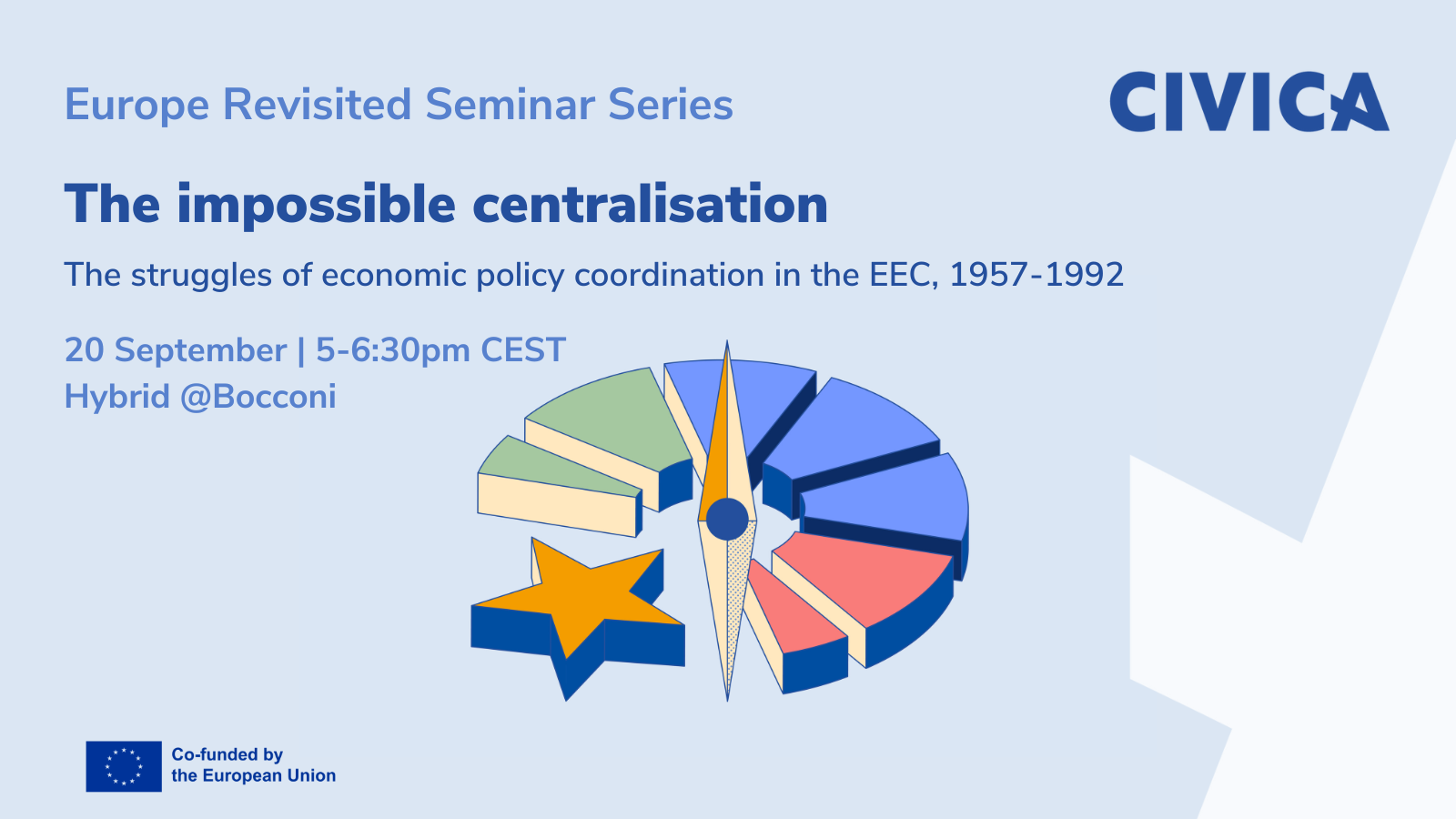The impossible centralisation: the struggles of economic policy coordination in the EEC, 1957-1992
Note: This seminar will be available in hybrid form to colleagues across the CIVICA network.
To participate online, please register in advance here.
After registering, you will receive a confirmation email containing information about joining the meeting.
Welcome: Grace Ballor, Bocconi University
Keynote Speaker: Emmanuel Mourlon-Druol, EUI, European University Institute
Abstract: How to coordinate the national economic policies of EU members has not appeared on the policymaking agenda after Maastricht and the creation of the European single currency. Rather, it has plagued European debates about the making of a possible European monetary union since the very foundation of the European Economic Community in 1957. This presentation will discuss three main phases in these debates. The first phase concerned the creation of a space for discussion of economic policy coordination-related issues from 1957 until the mid-1970s. Discussions in this period were largely driven by a desire to organise, ex ante, European economic relations. The second period ranges from the mid-1970s until the mid-1980s and analyses both the inability to improve this framework and the emergence of market-based constraints through the creation of the European Monetary System (EMS). The third period, from the mid-1980s to the Treaty of Maastricht, scrutinises the very last failed attempts to centralise economic policy coordination at EEC level, and the agreement on the debt and deficit criteria. Taken together, these three steps show how the centralisation of decision-making at EEC level remained the greatest obstacle to significant reform of the economic policy coordination framework.
About the speaker: Emmanuel Mourlon-Druol is Professor of History of European Cooperation and Integration at the European University Institute in Florence. He is also Non Resident Fellow at Bruegel. His research focuses on 20th Century international and transnational history, with a particular interest on European cooperation and integration, business and financial history, the cold war, and the use of digital methods in historical research. Prior to coming to the EUI, Emmanuel was Professor of International Economic History at the University of Glasgow. Emmanuel has held several visiting appointments at the Université Libre de Bruxelles, Columbia University, the University of Economics in Prague and the University of Tokyo. He is the author of A Europe Made of Money: the Emergence of the European Monetary System (Cornell University Press) and co-editor of International Summitry and Global Governance: the Rise of the G-7 and the European Council, 1974-1991 (with Federico Romero, Routledge). His work has appeared in Business History, Cold War History, Contemporary European History, Diplomacy & Statecraft, JCMS: Journal of Common Market Studies, and West European Politics, among others.
The event is organised in the framework of CIVICA – The European University of Social Sciences. CIVICA brings together ten leading European higher education institutions in the social sciences to build an inter-university campus that provides joint and long-lasting opportunities in teaching, research and innovative learning, while enhancing academic excellence and facilitating civic engagement in Europe and beyond. CIVICA was selected by the European Commission as one of the pilot European Universities in 2019 and confirmed as successful alliance in 2022 for its full roll-out under the Erasmus+ programme. Read more on civica.eu.
